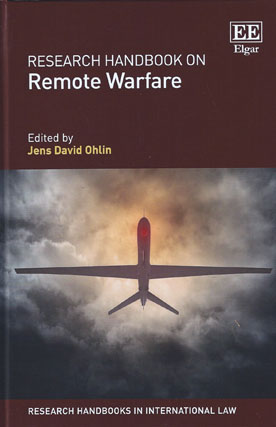
The practice of armed conflict has changed radically in the last decade. With eminent contributors from legal, government and military backgrounds, this Research Handbook addresses the legal implications of remote warfare and its significance for combatants, civilians, policymakers and international lawyers.
Primarily focused on the legality of all forms of remote warfare, including targeted killings by drone, cyber-attacks, and autonomous weapons, each chapter gives a compelling insight beyond the standard and reactionary criticisms of these technologies. Current assumptions of remote warfare are challenged and discussed from a variety of international perspectives. These include governing the use of force, humanitarian law, criminal law, and human rights law.
Contributors consider the essential features of current warfare regulations, and test their strength for controlling these new technologies. Suggestions are made for the future development of law to control the limits of modern remote warfare, with a particular focus on the possibility of autonomous weapons.
This is an essential read for academics and students of jus ad bellum, international humanitarian law, criminal law and human rights. Students of political science, governance and military studies will also find this a thought-provoking insight into modern warfare techniques and the complex legal issues they create.